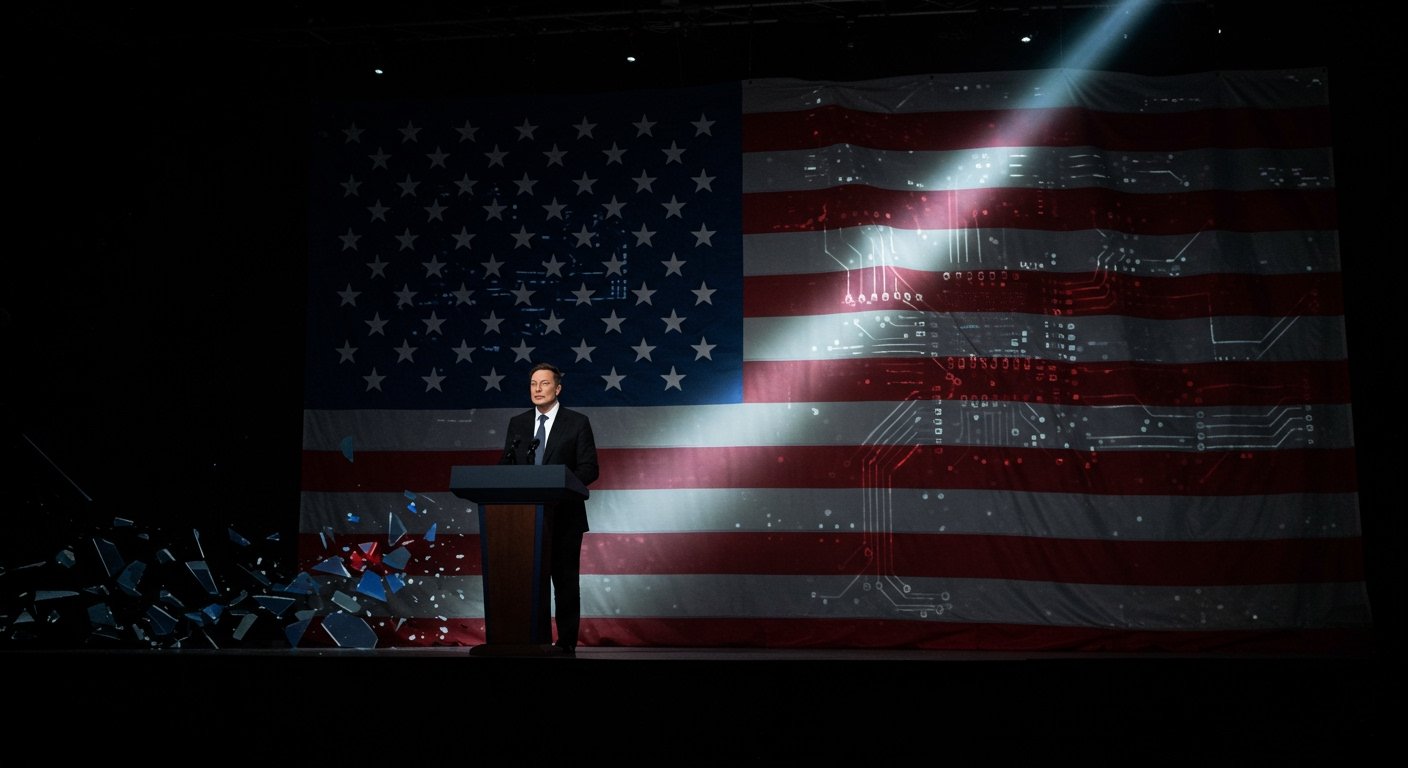In a significant development poised to potentially reshape the contours of the American political landscape, entrepreneur and technology magnate Elon Musk has reportedly announced the formation of a new political entity. The proposed group is understood to be referred to as either the “American Party” or the “America Party.” This move by one of the world’s most prominent figures arrives at a time of heightened political polarization in the United States and could signal a notable shift in the dynamics among influential non-traditional political actors.
The announcement from Mr. Musk, known for his ventures including Tesla and SpaceX and his significant presence on social media platforms, specifically X (formerly Twitter), marks a direct foray into party-level politics. While details regarding the structure, platform, and objectives of this new political entity remain emerging, the naming conventions, “American Party” or “America Party,” suggest an intended broad national appeal, potentially aiming to attract voters from across or outside the established party lines.
Context: Amidst Reports of a Trump Feud
The timing of Mr. Musk’s reported initiative is particularly noteworthy, occurring amidst reports of a deepening feud or significant fallout between the billionaire entrepreneur and former U.S. President Donald Trump. While the precise nature and origins of the alleged discord have been the subject of considerable speculation, the confluence of these events suggests a potential political realignment or divergence between two highly influential figures who have, at times, appeared to share certain viewpoints or objectives. Reports in various media outlets have detailed instances of apparent friction between the two, leading to the current perception of a strained relationship. This backdrop lends a layer of intrigue to the formation of a new political party attributed to Musk.
The relationship between prominent figures in business, technology, and politics has become an increasingly significant factor in contemporary political dynamics. The reported tension between Mr. Musk and Mr. Trump highlights how personal and professional relationships among elites can sometimes intertwine with or influence broader political maneuvers. The emergence of a new party under Musk’s potential leadership, particularly one reportedly formed during or following disagreements with a former president, underscores the complex and sometimes unpredictable nature of modern political movements and alliances.
Discussing Potential Impact on U.S. Politics
The potential impact of this newly announced political entity, the “American Party” or “America Party,” on the intricate U.S. political landscape is currently the subject of widespread discussion among political analysts, commentators, and the public. The United States has historically operated predominantly under a two-party system, with the Democratic and Republican parties dominating national politics for over a century. Third parties and independent movements have historically faced significant challenges in gaining traction, fundraising, and overcoming structural barriers such as ballot access laws and campaign finance regulations.
However, the unique profile and vast resources of Elon Musk could present an atypical challenge to this established dynamic. His immense personal wealth could potentially fund significant organizational efforts and campaign activities. Furthermore, his massive online following and ability to directly communicate with a global audience could provide an unprecedented platform for a nascent political movement to bypass traditional media gatekeepers and reach potential supporters directly. The extent to which these factors could translate into actual electoral success or meaningful political influence remains a matter of considerable debate and will likely depend on numerous factors, including the specific platform the party adopts, its ability to recruit viable candidates, and its capacity to build grassroots support.
Discussions are also focusing on which segments of the electorate such a party might appeal to. Could it draw disaffected voters from the major parties? Could it mobilize individuals who do not typically participate in the political process? Or could it inadvertently act as a ‘spoiler,’ potentially drawing votes from one of the major parties in key elections? These questions are central to understanding the possible strategic implications of the “American Party” or “America Party” on future electoral contests, from local races to presidential elections.
Looking Ahead
The formation of the “American Party” or “America Party,” as announced by Elon Musk, represents a potentially significant, though still developing, event in U.S. politics. Its emergence amidst a reported feud with former President Donald Trump adds a compelling layer of context to this development. As details about the party’s infrastructure, leadership, and policy positions emerge, political observers will be keenly watching to assess its viability and its potential to genuinely impact the deeply entrenched two-party system. The coming months will be critical in determining whether this new entity can transition from an announcement by a prominent figure into a substantive force capable of influencing the direction of American governance.
The discussions surrounding its potential effects underscore the fluidity of the political environment and the ongoing search by some segments of the population for alternatives to the established political order. The trajectory of the “American Party” or “America Party” will undoubtedly be a focal point of political analysis moving forward.





